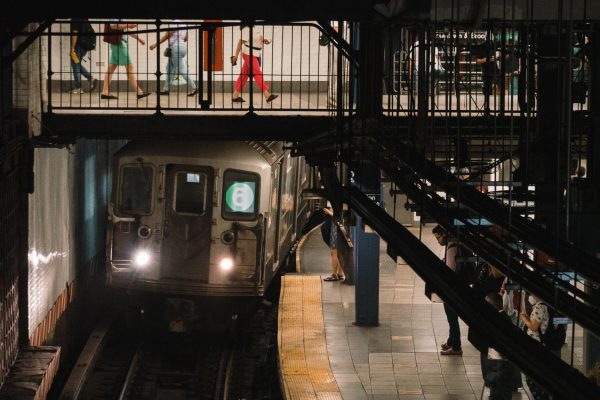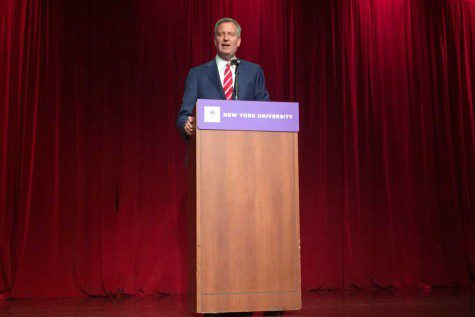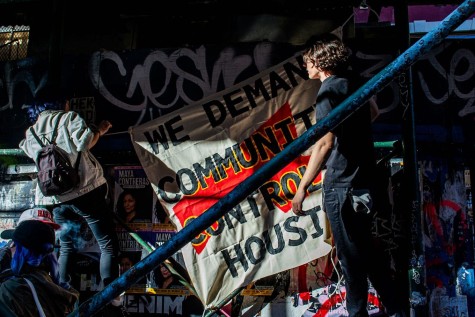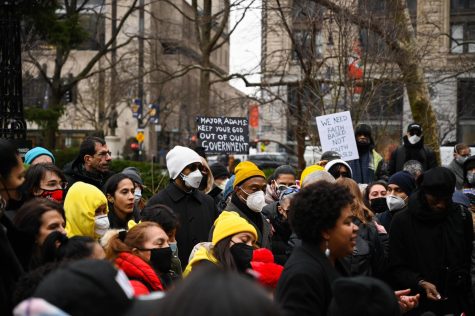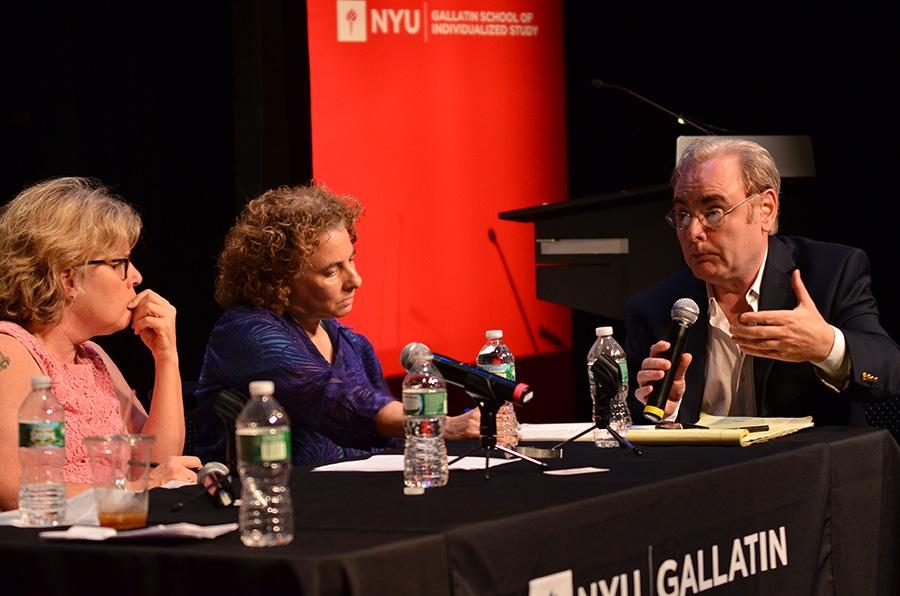Panel evalutes de Blasio’s record
Staff Photo by Felipe De La Hoz
Journalists from CBS News, The Huffington Post, City Limits, El Diario/La Prensa and others gathered last night at the Jerry H. Labowitz Theatre for the Performing Arts for a panel to talk about Mayor and NYU alumnus Bill de Blasio’s record in office.
The event was organized by Rebecca Amato, the assistant director of civic engagement at the Gallatin School of Individualized Study, and the new Urban Democracy Lab. Amato questioned whether de Blasio is a progressive mayor.
“Everyone is touting him as the new generation of progressive mayors, and as the leader of that generation.,” Amato said after the panel. “The question is if he really represents a progressive vision or if he’s simply progressive in comparison to his predecessors.”
The event opened with each of the four panelists talking about their concerns regarding the current administration in New York City.
Jarrett Murphy, publisher of City Limits, said contrary to many critics, de Blasio’s environmental policies in the city have done a lot to promote green policies.
“I think that de Blasio’s reputation for neglecting the issue of environmentalism is unfair,” Murphy said during the panel. “The mayor has actually done a bit on environmental sustainability. He has updated the city’s pollution control code, he’s expanded the carbon challenge program, he’s done stuff with low-flow toilets.”
Other topics discussed at the panel included culture and the arts. The director of Arts & Democracy Project Caron Atlas said the art community was initially disappointed when Mayor de Blasio entered office.
“There was a concern from the arts community that his agenda didn’t really involve the arts and culture, and there was a concern that he didn’t name a cultural commissioner for a long time,” Atlas said.
But Atlas added that de Blasio’s record with arts funding was more progressive than previous mayors.
“In the past administration, there was a lot of attention to tourism and economic prosperity from top down in respect to art and culture and not much talk about neighborhoods and their impact on the arts,” Atlas said. “But we were delighted to hear de Blasio talk about how you can’t have a flourishing democracy without the cultural sector.”
After the discussion the panel opened up the floor for a question-and-answer section, in which they debated issues including the stop-and-frisk program, drug policies and income inequality.
CAS graduate student Ana Deustua said her opinion of de Blasio had changed by the end of the panel.
“I think that a lot of people had a lot of hope for him because people thought he was open to diversity and other people, but after the panel I am kind of disappointed in him,” Deustua said. “I just got here. I’m from Peru, but before this panel I was very hopeful that someone so liberal was becoming the mayor of New York City.”
A version of this article appeared in the Thursday, Sept. 4 print edition. Email Alanna Bayarin at [email protected].
Alanna Bayarin is an Editor-at-Large for the Washington Square News.























































































































































